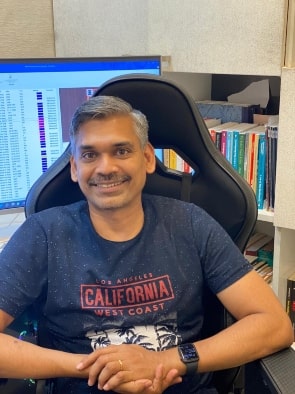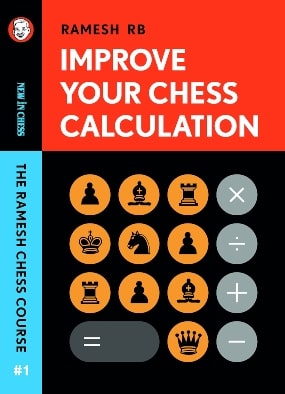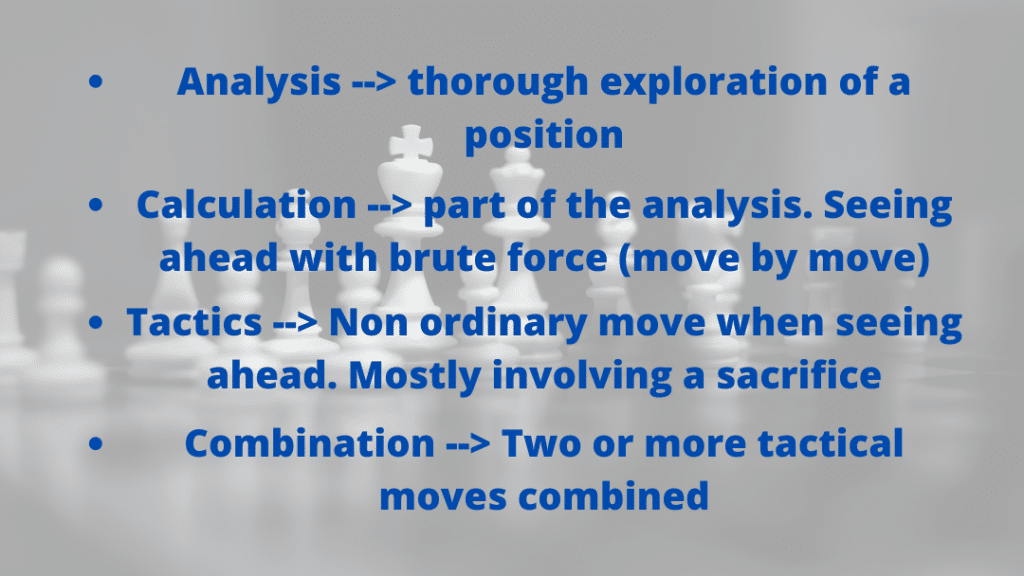This is an interview I have long waited to publish. I had the honor to talk to one of the most decorated (Junior) Coaches of the past 2 decades.
Grandmaster Ramesh RB has Coached his students to more than 45(!!!) Gold Medals in World (Junior) Events, served as Coach of the Indian National Team for 7 years (2012-2018, including a historic Bronze Medal at the 2014 Olympiad), and was crowned FIDE’s Junior Trainer of the year 2018.

Lately, he is most known for Coaching Indian super-talent GM Praggnanandhaa (among other super-strong players) and founding the Training Plattform ProChessTraining with his partners, GM Ganguly & GM Panchanathan.
I met Ramesh RB in a training camp in 2019, where his methods and clarity left a big impression on me. If you want to profit from his immense knowledge you should absolutely check out ProChessTraining.
You can get group lessons with him and other great Coaches at a super affordable price. 5 different groups (from Freshers <1000 to Elite 2400+) guarantee that you will find the perfect lessons for your level.
Check ProChessTraining out today and sign up for a monthly or yearly membership, starting from only 50$/month. You can also check Ramesh out on Twitter or get his new book on Calculation.

Ramesh On Calculation
As a well-rounded Coach, Ramesh can teach anything chess-related. But for me, his thoughts on Calculation really stand out. That is why I decided to start our conversation there. We cover many different areas, so make sure to read until the end!
If anything strikes you as unclear or wrong, blame me for failing to put his word into understandable text. This is a first-timer and I hope I managed to get Ramesh’s message over in the right tone & voice.
Noël:
Hi Ramesh, thank you so much for taking the time. Let’s start with the basics. What is your definition of Calculation?
Ramesh:
There are many terms we use as a matter of routine. But probably not with the clarity they deserve. Let’s start with the biggest two: Analysis & Calculation.
Calculation is seeing ahead. Mostly with brute force. No logic or principles are involved in that process. Just move by move.
Analysis is a broader term. It can involve more abstract thinking as well.
We can include Chess principles, think about weaknesses, and use intuition and strategic thinking. Calculation is part of a thorough analysis of a position. But only one slice of the whole Pizza called Analysis.
N:
That makes a lot of sense. So when I come up with a strategical plan & then find a concrete way of putting it into action, I’m analyzing a position?
R:
Exactly.
And Tactics is where you are not looking at «normal» moves. Tactics will involve a key move, unexpected moves, or sacrifices. This is part of calculation, but a special one.
Let’s say in a pawn race, there are usually no tactics involved. Just normal moves, calculating who Queens first.
If one side is underpromoting the pawn into a Knight, for example, we introduce a tactical operation. It was an unexpected move.
Underpromotion is one of many tactical themes. There are also pins, skewers, fork, back rank mate, double attack, and many more. Most of them involve a (temporary) sacrifice.
Now if we combine two or more tactical themes, we get a combination.

Knowing Is Not Doing
N:
Very interesting! So, in the end, everything is connected. Tactics are a part of Combinations, both form part of Calculation & Calculation is a part of the analysis of a position.
R:
Yes, exactly. And I believe this to be very important for my students to understand. Mostly we “know” that we should do something, but we still don’t do it. Let’s take an example from normal life.
We all know we should exercise to stay fit & healthy. Yet, many of us don’t do it (regularly).
Now if a person has a heart attack and the doctor then tells them: you need to exercise if not you might die, the likelihood goes up tremendously that this person will indeed exercise.
What changed is that the person has seen the potential consequences and deeply understands why they should exercise. The theoretical knowledge got more concrete.
The same applies to chess. Instead of just saying: study tactics or develop your pieces, I try to make my students understand why I tell them to do so.
N:
That makes me think of myself. I recently started to play some Poker. And I sometimes catch myself doing things that I “know” I should not do. Playing certain starting hands or bluffing in wrong situations. It is as if the knowledge is not concrete enough, as you say.
Once I lose a lot of money by playing a stupid hand, the knowledge gets more concrete.
R:
Absolutely. Knowing is not doing!
The Most Frequent Mistakes With Solving Exercises
N:
Back to Chess. Everyone knows that solving exercises will improve tactics & calculation. But many don’t do it.
R:
I slightly disagree here.
I see many people solving a lot of exercises, but they don’t improve. This was very surprising at first.
Initially, I thought people were just lazy and not working on chess. That is why they don’t improve. But when I became a Coach, I understood that there is another problem.
In a normal class of 15 kids, there are 3 or 4 that will improve within one week. Some others will need 15-20 days to show some considerable improvements. But then there are always some kids, maybe around 40% of the class, who don’t improve a single bit. Not even 1%.
N:
Oh wow, that is a big amount. Do you have an explanation for it?
R:
They are making some critical mistakes while solving. For example, you will see them move the pieces in exercises. Online, they will take 10-20 seconds and just try out one move. If it is wrong, they try another move 10 seconds later.
Inevitably, at some point, they will arrive at the right solution and feel like they solved the puzzle correctly. But in reality, it was just try-and-error. Whatever move comes to their mind they just execute it.
This way their visualization doesn’t improve at all.
N:
Like watching someone solve the puzzles. It seems easy afterward, but if you have to do it yourself you are totally lost.
R:
Yes. The second main problem is that the kids that don’t improve at all aren’t curious about the opponent’s defense. As soon as they see an attractive idea, they go with it. They don’t put in the effort to refute their own ideas.
N:
So other than doing something we know we should do, it is about doing it in the right way.
Ramesh On How To Train Properly
R:
For example, I learned to swim when I was young. Not from professionals, but I was able to float.
Then 15 years ago I understood that I’m just holding my breath whenever I swim. I can only swim for 30-40 seconds at a time, then I have to take a break and catch some air.

So, I learned Swimming and I can swim, but I’m not good at it. No matter how much I repeat it that way, I won’t get better or get the benefits associated with swimming. Unless I teach myself how to breathe properly. Then I can swim longer & better.
The technique of training right is very important.
One big problem is a misconception of who gets very strong (in Chess). Most people think the hard-working ones are getting very strong, the not so hard-working ones are less strong.
In fact, it is the ones who train in the proper way (either instinctively or by learning it) that reach their potential. The ones that don’t reach their potential usually do not know how to train in the proper way.
Players like Anand, Alekhine, and frankly many GMs from my generation got strong without having a proper Coach. It is because they understood instinctively how proper training should look like.
For all the others, it is the Coach’s Job to teach them how to train properly.
N:
So, the incredible success of your Academy is thanks to you teaching your students how to train properly?
R:
Yes, you could say so. Another key ingredient is to understand the difference between knowledge and skill. We acquire knowledge in many different ways: reading books, watching videos, or listening to a Coach. As I said before, knowing isn’t doing.
What is missing is the experience with that knowledge. Once we get experience acting on the learned knowledge, we form a skill.
So just explaining how my students should train is not enough. I need to convince them intellectually that this is the right way to train and then make them apply it themselves.
Upon trying to implement it they will struggle and come up with practical difficulties. Now as a coach it is my duty to know how to solve these practical difficulties. Every time they do it right and implement the right strategy, we can increase the difficulty.
N:
This reminds me of a training session we had together in Crete. You forced us to calculate a very difficult position in our head for over 1 hour.
We could not move any pieces, nor did we see the initial position after a while. It was the first time I did something like this, and I faced many practical difficulties…
R:
I remember. We just sat in the lobby, without board and talked about this position. That was a fun experience. Now most players of that group were very strong already (2400+).
With the fresh minds of kids, it is even more challenging (laughs and adds: also, more interesting).
N:
You also told us that training should be harder than the game. Can you explain why?
R:
That way we extend the limit. Only if we push our limits we can truly improve. Our limits are usually self-created in our own minds.
“We don’t rise to the level of our expectations; we fall to the level of our training.”
Attributed to the ancient Greek poet Archilochus
Ramesh On Talent
N :
Another word that is used in many different situations is talent. Do you believe in talent? Or is it non-existent?
R:
Talent definitely exists.
What is more controversial is what talent exactly is.
Talent is not only about technicalities. The ability to work hard is also Talent. I believe it was Kasparov who said something like this in one of his books.
“You often hear in chess and other sports that ‘this player is more talented’ but ‘that player works harder.’ This is a fallacy. Hard work is a talent. The ability to keep trying when others quit is a talent.”
13th Chess World Champion, Garry Kasparov
A great example is my student GM Praggnanandhaa. When I met him he was around 7.5 years old (laughs, almost a baby 😊). Already then in a chess sense he was mature.
He knew he will become a strong player. And he knew he will not get anywhere without hard work.
I did not have to convince him at all.
It is extremely difficult to convince around 60-70% of Chess Players to work hard on chess. In their mind, they actually think they work hard. But they don’t. We should also all have a clear understanding of what hard work is.
Noël after the interview, a short explanation:
Having been in a few group lessons with Praggnanandhaa and other strong students from Ramesh, I can only say it is very impressive to see their dedication and work ethic. They are spot on, always participating actively, and show an immense hunger to learn new things.
Also, there is absolutely no shame involved in getting something wrong. While I believed to be a “hard-working” chess player, I understood quickly that there are many harder-working players out there.
R: (continues)
Another point that is overlooked in chess is the ability to learn. This ability also depends on your interests. It will be easier to teach you (referring to me, Noël) some poker now than let’s say teaching Chinese.
On the other hand, a small Tamilian boy will not have any difficulties learning Tamil. It comes naturally.
Every Child has different areas of interest, where they show a great ability to learn. That is why I believe the school system to be wrong as well. With the assumption that everyone can learn everything, we put many children into the same classroom and teach them the same things.
In my view, this is stupidity. Some children like math, other music or Chemistry. In my opinion, it would be the task of education is to find out which child has an interest in what area and then help the children achieve their potential in given areas.
Obviously, you cover the basics of all the areas but then focus on the main area for each specific child.
Another big point is the difference between enjoyment/casual interest or the willingness to excel in something. I like reading books, but I don’t have ambitions to become a novelist. I just read for pleasure.
In order to become a really strong player in chess, you not only need interest, but also ambition. Ambition means you are willing to pay the price.
N:
That might explain why many “want” to become a Grandmaster, but they never achieve it. They have an interest but aren’t willing to sacrifice things in order to achieve their “wish”.
R:
Want is usually just social status (smiles).
N:
Totally agree. I sadly know of some IMs that say for years they want to become a GM. They apparently work dozens of hours per week on chess but don’t improve. I just can’t imagine this is a problem of talent, but rather a problem of wrong training.
R:
In training, the main question is: is the learning happening? As long as the learning is happening, the training makes sense.
Most of the training is happening without learning. It is just an accumulation of information.
Let’s take live games as an example. You can just listen to a commentator and feel like you learned something.
But that kind of passive learning is useless. Say someone wants to learn from a live game. Switch off all the commentary for the game as well as the engine, put the position on a board in front of you, and start to think.
Then you write down what you would play and compare it with what happened in the game you follow.
This is how actual learning is happening. After being interrupted by a thunderstorm in India, we continued to talk about how to improve and train properly. The second part of the interview will be in a separate article coming out soon!
Afterword
I hope you enjoyed reading this interview as much as I enjoyed talking to Ramesh. Some of the insights are reflected already in some of my articles or life decisions.
After writing the interview out, something suddenly got very clear:
Towards the end of my career, I wasn’t willing to pay the price anymore. I got lazy and preferred to watch videos instead of solving tough exercises. I preferred to trust my instincts & got sloppy in preparation. Even if this only was 95% instead of 100%, the difference is enormous. As Ramesh said, I trained but no learning was taking place.
It is no shame to not be ready to pay the price. It is just sad to invest time & energy, without doing it right. That is why, ending my active career was the right decision for me personally.
Get Training From Some Of The Best Coaches In The World
Thanks to the Internet, you can get Coached by Ramesh yourself! Go check out his Training website ProChessTraining and sign up to get group training with Ramesh and other amazing Coaches for a very reasonable price!
If you want to get a better overview, check out this article where I get into all the pros and cons of ProChessTraining.
Your Feedback Makes This Blog Better
And now I would love to hear from you, my dear reader. Did you enjoy this new interview format? Or do you prefer reading standard articles where I dive deep into a chess improvement area?